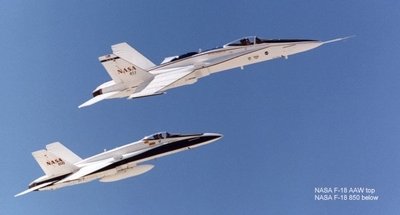Wed, Jul 23, 2003
Advertisement
More News
 Aero-News: Quote of the Day (12.18.25)
Aero-News: Quote of the Day (12.18.25)
“These new aircraft strengthen our ability to respond quickly, train effectively and support communities nationwide. Textron Aviation has been a steadfast supporter in helpin>[...]
 Classic Aero-TV: Viking Twin Otter 400--Bringing the DHC-6 Back Into Production
Classic Aero-TV: Viking Twin Otter 400--Bringing the DHC-6 Back Into Production
From 2011 (YouTube Edition): Rugged, Legendary, STOL Twin Makes A Comeback The de Havilland Twin Otter is an airplane with a long history, and it gained a reputation as a workhorse>[...]
 NTSB Final Report: Rans Employee Flying Club Rans S-6ES Coyote II
NTSB Final Report: Rans Employee Flying Club Rans S-6ES Coyote II
A Wind Gust Lifted The Right Wing And The Airplane Turned To The Left Analysis: The pilot was departing from a 2,395-ft-long by 50-ft-wide turf runway. The pilot reported that afte>[...]
 ANN FAQ: Submit a News Story!
ANN FAQ: Submit a News Story!
Have A Story That NEEDS To Be Featured On Aero-News? Here’s How To Submit A Story To Our Team Some of the greatest new stories ANN has ever covered have been submitted by our>[...]
 ANN's Daily Aero-Term (12.18.25): Braking Action Advisories
ANN's Daily Aero-Term (12.18.25): Braking Action Advisories
Braking Action Advisories When tower controllers receive runway braking action reports which include the terms “medium," “poor," or “nil," or whenever weather con>[...]
blog comments powered by Disqus





